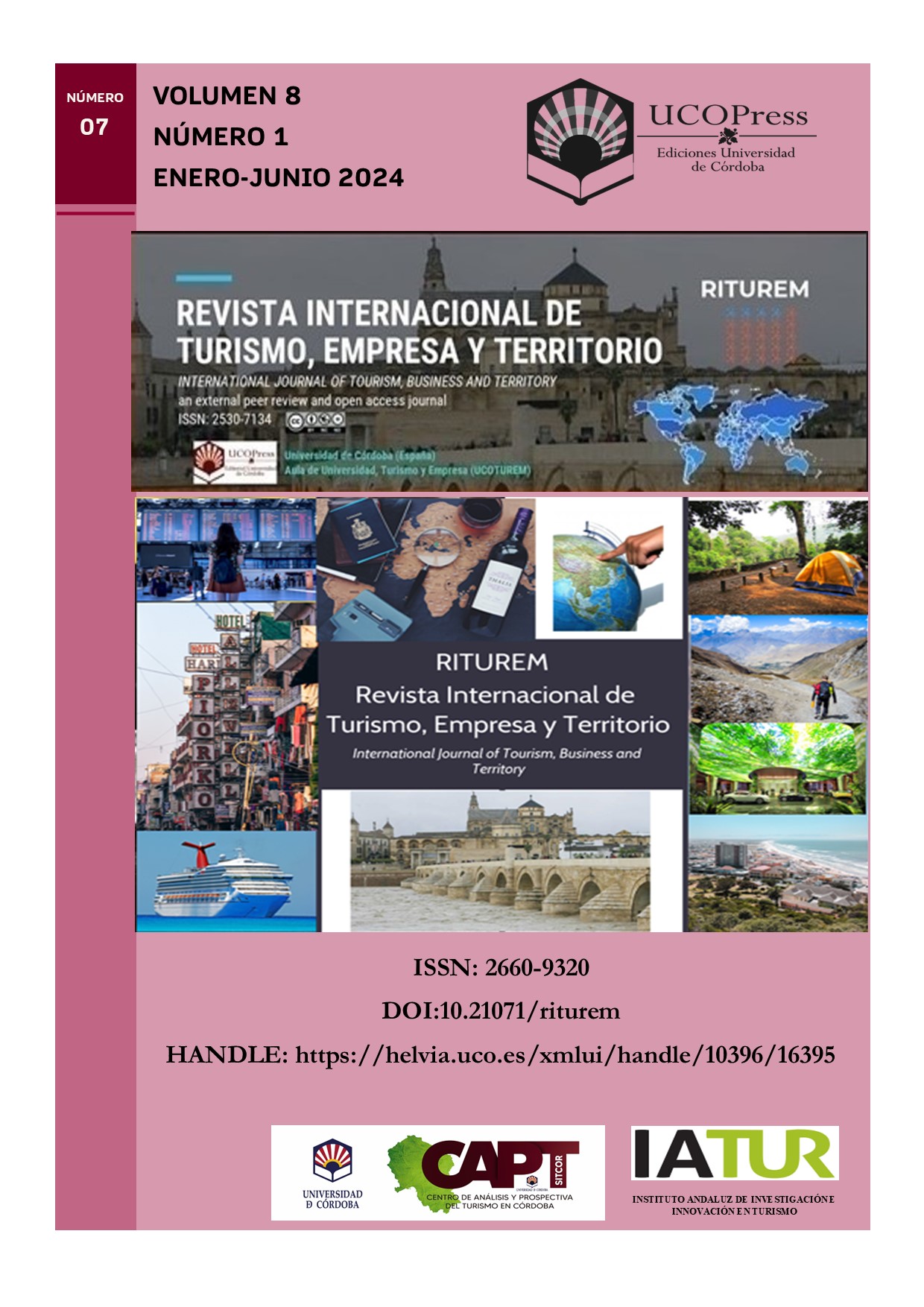Article withdrawn due to duplication
Main Article Content
Abstract
The Editorial Board of the Revista Internacional de Turismo, Empresa y Territorio (RITUREM) formally announces the withdrawal of the manuscript:
“Tourism Response and Recovery to Covid-19 in Historic Urban Destinations (Cases of Belgium and the Netherlands)”
The withdrawal is solely due to an editorial error that resulted in the duplication of a version previously published in Via Tourism Review (DOI: https://doi.org/10.4000/viatourism.8393 ).
We wish to make clear that the authors bear no responsibility for this situation, which stems exclusively from an internal administrative oversight.
Editorial Board of RITUREM
Downloads
Article Details

This work is licensed under a Creative Commons Attribution-NonCommercial 4.0 International License.
Copyright Notices Proposed by Creative Commons
Proposed policy for journals offering deferred open access
Those authors who have publications with this journal, accept the following terms:
1. The authors will retain their copyright and guarantee to the journal the right of first publication of their work, which will be simultaneously subject to the Creative Commons Recognition License CC BY-NC 4.0 (Creative Commons — Attribution-NonCommercial 4.0 International — CC BY-NC 4.0 ) hird parties to share the work provided that its author and its first publication is indicated this journal and no commercial use is made.
2. Authors may adopt other non-exclusive licensing agreements for the distribution of the published version of the work (e.g., deposit it in an institutional telematics file or publish it in a monographic volume) provided that the initial publication is indicated in this journal.
3. Authors are allowed and recommended to disseminate their work over the Internet (e.g. in institutional telematics files or on their website) before and during the submission process, which can produce interesting exchanges and increase citations of the published work. (See The effect of open access: http://opcit.eprints.org/oacitation-biblio.html.
